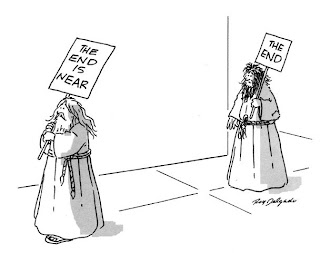Vision Killers
I am close to the end of writing my next Kindle book. The working title is, Foundations: Examining Vision, Beliefs, Mission, and Philosophy. In it, I define a few "vision killers" that leaders need to look out for when developing their vision.
Here is an excerpt form the book in which I describe vision killers. Be aware of them as you reflect on your own vision of schools.
Here is an excerpt form the book in which I describe vision killers. Be aware of them as you reflect on your own vision of schools.
Traditions that impede progress
Traditions are fertile ground to harness symbolic leadership, but can also act to slow progress. When misinterpreted, traditions act as a convenient excuse to stop forward progress. Be alert to when tradition is used to stop progress as opposed to celebrate success.
Fear of scorn
Success breeds success, but it also brings out the worst in some people, especially those who are envious of your success. It is unfortunate, but strong visions can illicit strong responses from those who feel threatened by your vision.
Stereotypes
If your vision is being challenged by assumptions and impressions that cannot be backed up by facts or firsthand observation, you may be working against stereotypes. Work to disprove the stereotype by demonstrating where and how the stereotype is baseless. Also, make up your own mind and satisfy any concerns you have by engaging with your audience to judge the validity of the claims.
Limited thinking
Limited and short-term thinking can attack a vision, especially during difficult times and during conflict. Your desire to ease the pain and get past the challenge of the day encourages you to possibly abandon the long-term vision of a preferred future and replace it with the comfort of short-term immediate gratification. Be careful not to confuse addressing immediate issues with compromising a compelling vision for the future.
Once Foundations is published, I will make an announcement here. As with my other book, Paying Attention, Foundations is an easy and quick to read guide written with three guiding principles: share some insights I have gathered, prompt the reader to reflect on her own practice, and provide ideas from which the reader may use to improve their practice.

